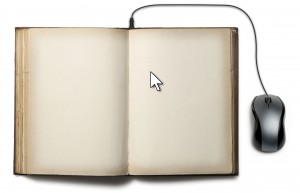 Spaces, whether domestic, social, or political, often carry symbolic or metonymic meaning. As Nicole Pohl points out in Women, Space and Utopia 1600-1800, there is a “complex linkage between space, knowledge and power, identity and the body” (1). However, the occupants of a space can transform, alter, or redefine its significance. In early modern England, women employed a number of strategies to question, defy, and change the traditional authoritative and often oppressive spaces in their world/lives. For example, by forming bonds with other inhabitants of the prison, Mary Wollstonecraft’s Maria undermines the punishing isolation of the jail cell and converts it into a communal space defined by equality. By placing her body on display in a sustained trance Anna Trapnel transforms an inn into a sight of political protest calling into question Cromwell’s authority in England. This panel seeks to examine the multitude of strategies early modern women used to redefine spaces associated with or symbolic of, power and oppression. Spectacle, physical suffering, literacy, travel, and community are some of the tactics women used to accomplish the transformations that this panel aims to explore. By investigating the ways in which women represent their alterations of these spaces we will also address the essential question, once ruptured, what emerges? How do women modify, resist, usurp and/or escape the spaces that bind them? What do these women accomplish? Please send 300 word abstracts and a brief curriculum vita to Andrea Fabrizio or Ruth Garcia: at FabrizioGarciaabstracts@gmail.com
Spaces, whether domestic, social, or political, often carry symbolic or metonymic meaning. As Nicole Pohl points out in Women, Space and Utopia 1600-1800, there is a “complex linkage between space, knowledge and power, identity and the body” (1). However, the occupants of a space can transform, alter, or redefine its significance. In early modern England, women employed a number of strategies to question, defy, and change the traditional authoritative and often oppressive spaces in their world/lives. For example, by forming bonds with other inhabitants of the prison, Mary Wollstonecraft’s Maria undermines the punishing isolation of the jail cell and converts it into a communal space defined by equality. By placing her body on display in a sustained trance Anna Trapnel transforms an inn into a sight of political protest calling into question Cromwell’s authority in England. This panel seeks to examine the multitude of strategies early modern women used to redefine spaces associated with or symbolic of, power and oppression. Spectacle, physical suffering, literacy, travel, and community are some of the tactics women used to accomplish the transformations that this panel aims to explore. By investigating the ways in which women represent their alterations of these spaces we will also address the essential question, once ruptured, what emerges? How do women modify, resist, usurp and/or escape the spaces that bind them? What do these women accomplish? Please send 300 word abstracts and a brief curriculum vita to Andrea Fabrizio or Ruth Garcia: at FabrizioGarciaabstracts@gmail.com
Deadline: September 30, 2013
Please include with your abstract:
Name and Affiliation
Email address
Postal address
Telephone number
A/V requirements (if any; $10 handling fee with registration)
45th Annual Convention, Northeast Modern Language Association (NeMLA)
April 3-6, 2014
Harrisburg, Pennsylvania
Host: Susquehanna University
The 2014 NeMLA convention continues the Association’s tradition of sharing innovative scholarship in an engaging and generative location. This capitol city set on the Susquehanna River is known for its vibrant restaurant scene, historical sites, the National Civil War museum, and nearby Amish Country, antique shops and Hershey Park. NeMLA has arranged low hotel rates of $104–$124.
The 2014 event will include guest speakers, literary readings, professional events, and workshops. A reading by George Saunders will open the Convention. His 2013 collection of short fiction, The Tenth of December, has been acclaimed by the New York Times as: “the best book you’ll read this year.” NeMLA’s Keynote Speaker will be David Staller, Producer and Director of Project Shaw. Mr. Staller presents monthly script-in-hand performances of Bernard Shaw’s plays at the Players Club in New York City.
Interested participants may submit abstracts to more than one NeMLA session; however, panelists can only present one paper (panel or seminar). Convention participants may present a paper at a panel and also present at a creative session or participate in a roundtable. http://www.nemla.org/convention/2014/cfp.html
 The Grace Hopper Celebration of Women in Computing is an annual, national conference that draws thousands of female computing professionals together to celebrate, support, and discuss women in computing. It is the largest technical conference for women in computing, and this year it is being held in the Minneapolis Convention Center, October 2nd through 5th.
The Grace Hopper Celebration of Women in Computing is an annual, national conference that draws thousands of female computing professionals together to celebrate, support, and discuss women in computing. It is the largest technical conference for women in computing, and this year it is being held in the Minneapolis Convention Center, October 2nd through 5th.




